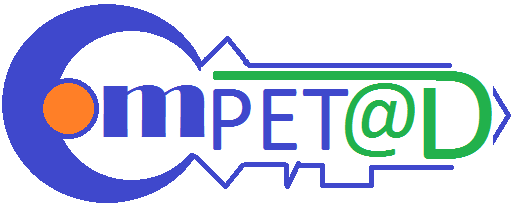The Philippines HR Group has successfully concluded its first publicly-held learning event last 18 November 2016 at the MK Tan Hall Bayanihan Center in Pasig City. The Philippines HR Group is an online-based group that was established in July 2015. Its mission is to create an avenue that promotes and fosters individual and organizational effectiveness by developing and offering an array of innovative, diverse, and cost-effective yet valuable events, programs and activities for Human Resource Professional and People Managers alike. The organization is composed of three groups led by Mr. Darwin Rivers – The Philippines HR Group Moderators and Administrators, The Philippines HR Group Mentor’s Circle, and the Philippines HR Group Core Volunteers Team. As it has been our advocacy in promoting learning and development among professionals in the country, The COMPETAD Team is proud to be part of the Core volunteers group that has helped make the event possible.
The highlights of the event were inspirational talks from nine of the country’s top HR Professionals. In the morning session, we listened to Mr. Sonny Santos (Chief Equipping Officer – WSPH Training & Consulting) who warmed up everyone as he spoke about the evolution of Human Resources. Then, Mr. James Estrada ,who has over 4 Decades of HRM Leadership Experience /Labor Relations Expert, heated it more with a discussion on Labor and Employee Relations. This was then it was succeeded by Mr. Danny Pancho (Former Director – People Management Association of the Philippines) who gave great ideas about rewards management. Before we went on Lunch, we also revisited our knowledge about HR Core Values from Ms. Elvie Garcia (Managing Partner – OpisHR Consultancy) where she has widened our horizon about how HR professionals must see themselves and their own values in their line of work as practitioners.
In the afternoon, we started by hearing about Corporate Social Responsibility from from Mr. Jay Jaboneta (Strategic Advisor at Institute for Solidarity in Asia/ Fire Starter and Chief Storyteller at Yellow Boat of Hope Foundation. Then, Ms. Susan Ople (Former Undersecretary DOLE/ Founder – Blas Ople Policy Center (BOPC)) gave a very informative talk about the current issues, trends, and challenges inthe Philippine’s labor condition. After that, Ms. Michelle Cordero-Garcia provided an insightful talk about retaining employees and hiring new talents. Ms. Cordero-Garcia was recognized by CHRO Asia, a high-level global professional body for Human Resource Leaders, as one of the Top 100 Most Talented HR Leaders. After that, we learned more about Training Management when Mr. Edwin Ebreo (President of ExeQserve Corporation) shared his experiences to us. Lastly, we were energized by a very humorous and reflective talk about Promoting Work-Life Balance from Ms. Daphne Granfil (CEO of DBG Training Management and Public Relations Consultancy).

Aside from the knowledge-enriching experience, the event was also spiced up by games and prizes from the sponsors, including a raffle in which the major prizes were a hotel accommodation in Boracay and another one in Baguio. The summit was attended by 226 delegates from different companies all over the country, which includes delegates from the provincial regions. It was truly a memorable and worth-while learning experience. Congratulations and more power to the Philippines HR Group in advocating such a wonderful event. This truly shows your passion and commitment in upholding your mission to the HR Community!





